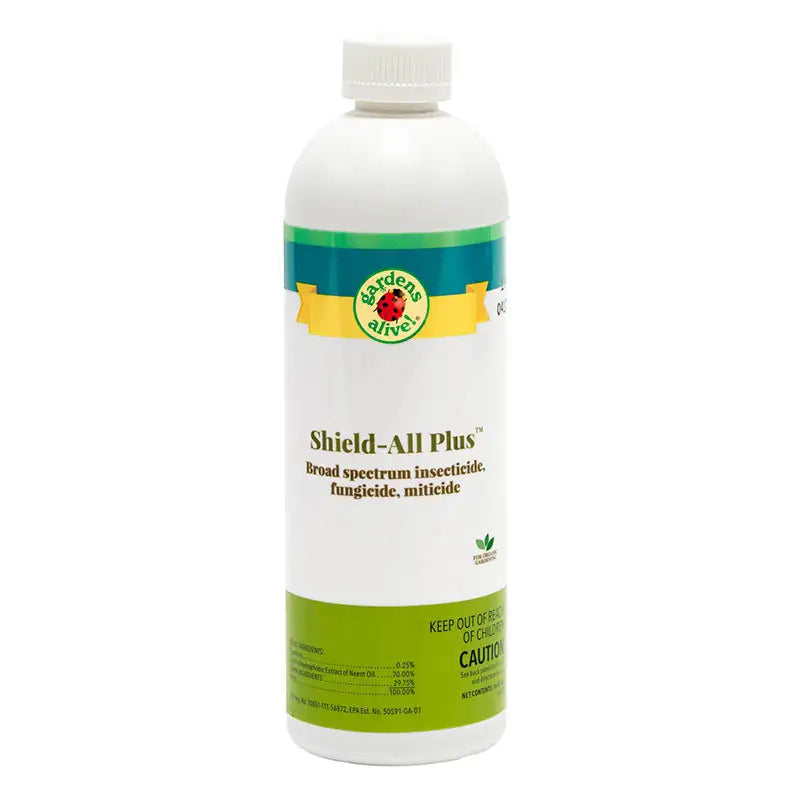Is Rosemary an Insect Repelling Plant?
Q. Janice in Mesquite Texas writes: "What insects does rosemary repel? I'm thinking about planting it among my flowers."
A. Insect repelling plants are a perennial topic, but one that we have not yet addressed on the new versions of our show--and it's a GREAT topic, so let's have at it.
First, there are very few--if any--plants that can repel insect pests just sitting around in the garden. Because of its pungency, resinous and woody nature, rosemary itself has few to zero insect problems, but that's not going to translate to neighborhood protection--at least in normal amounts. You might be able to protect a small group of plants by surrounding them with a huge circle of rosemary, but that's not very practical.
However, there are tremendous advantages to just plain growing it. Although the winter climate in Mesquite is not as mild as most people would suspect, it rarely drops below freezing for any length of time, which means you can probably grow rosemary year-round outdoors as long as the soil in that area drains well and isn't crowded with other plants. (Rosemary likes good dry air flow, and the official meteorological term for Mesquite's humidity levels in July and August is {quote}: "miserable."
Two great uses for this plant stand out. The first is that it can make people more alert, especially when they're tired. The second is the possible ability of its potent phytonutrients to stave off dementia. As my dear departed friend, retired USDA researcher James Duke, Ph.D. liked to say: "sage will not make you sage, but rosemary will. It is the herb of remembrance".
So: It wakes you up when you're tired, improves your memory and may help stave off dementia. And all you have to do is prune off a sprig, rough it up and inhale that unmistakable aroma.
Back to insects. Remember the ads for the famous "mosquito repelling plant"? They showed a couple dining at a table outside with a potted plant in between them and angry mosquitoes spinning away faster than a vampire who sees the sun coming up. No plant in a pot can do that, but 'the famous mosquito repelling plant' actually DOES repel mosquitoes. It's a lemon scented geranium, and virtually all lemon-scented flowers and herbs have the ability to repel mosquitoes--if you crush up the leaves and rub them on your exposed skin. Nature's insect repellant.
In well-controlled medical studies, lemon thyme was the clear winner among garden herbs. Crushed and rubbed on the skin, lemon thyme repelled mosquitoes just as well and for just as long a time as some concentrations of DEET. And lemon thyme is a beautiful plant, with variegated leaves and a nice training habit that makes it perfect for hanging baskets and rock gardens. But alas, it is a small plant, and you'd have to grow a lot to get a summer's worth of natural mosquito protection.
That's why I personally grow lemon balm. Yes, it is a member of the mint family that spreads like wild if not controlled, but it works well against mosquitoes, has a wonderful lemon fragrance, and the plants are big enough to easily grow a whole summer's supply. To use it, prune off some branches, turn them upside down, strip the leaves off, crush and rub.
There are also several excellent natural and plant-based mosquito repellants on the market. One available widely at retail is "Repel Lemon Eucalyptus"; studies have shown it to be as effective as some fairly strong concentrations of DEET--and Lemon Eucalyptus is non-toxic. Gardens Alive's "Sting Free" repellant contains oil of geranium--the same material The Famous Mosquito Repelling Plant provides.)
Many herbalists who blend their own sprays almost always use lemon Eucalyptus or lemon thyme as the main active ingredient, mixed with essences of other plants that have shown prevention potential, including catnip, peppermint, geranium, lavender and yes, rosemary.
Now--some necessary words of caution. There's no potential harm in inhaling the fragrance of live rosemary or lemon balm as aromatherapy. (The noted natural physician Dr. Andrew Weil once told me that he felt that inhaling fresh lemon balm was a much better response to depression than taking St. John's Wort.) But rubbing plant material on your skin is another thing entirely. Before you slather anything all over yourself, crush up a small amount of the plant in question and rub it on a small section of your arm to make sure that you're not going to have an allergic or irritant reaction.
And never use the undiluted essential oils of these plants on your skin; they can be highly corrosive. These essential oils--sold in health food stores and the like--are highly concentrated and must be diluted with large amounts of a 'carrier' like almond oil to be used safely. If you want to learn how to do this, take classes with an herbalist; do not rely on Internet information.
And finally, don't confuse 'lemon-scented herbs' with real lemons. The peels of oranges and lemons are highly reactive with human skin, especially if that skin is then exposed to sunlight. Many vacationers have learned this the hard way after playing a game that involves passing lemons and oranges to each other without using their hands. The result is called "Cruise Ship Rash".
Really. As Casey Stengel famously noted, "you could look it up."
A. Insect repelling plants are a perennial topic, but one that we have not yet addressed on the new versions of our show--and it's a GREAT topic, so let's have at it.
First, there are very few--if any--plants that can repel insect pests just sitting around in the garden. Because of its pungency, resinous and woody nature, rosemary itself has few to zero insect problems, but that's not going to translate to neighborhood protection--at least in normal amounts. You might be able to protect a small group of plants by surrounding them with a huge circle of rosemary, but that's not very practical.
However, there are tremendous advantages to just plain growing it. Although the winter climate in Mesquite is not as mild as most people would suspect, it rarely drops below freezing for any length of time, which means you can probably grow rosemary year-round outdoors as long as the soil in that area drains well and isn't crowded with other plants. (Rosemary likes good dry air flow, and the official meteorological term for Mesquite's humidity levels in July and August is {quote}: "miserable."
Two great uses for this plant stand out. The first is that it can make people more alert, especially when they're tired. The second is the possible ability of its potent phytonutrients to stave off dementia. As my dear departed friend, retired USDA researcher James Duke, Ph.D. liked to say: "sage will not make you sage, but rosemary will. It is the herb of remembrance".
So: It wakes you up when you're tired, improves your memory and may help stave off dementia. And all you have to do is prune off a sprig, rough it up and inhale that unmistakable aroma.
Back to insects. Remember the ads for the famous "mosquito repelling plant"? They showed a couple dining at a table outside with a potted plant in between them and angry mosquitoes spinning away faster than a vampire who sees the sun coming up. No plant in a pot can do that, but 'the famous mosquito repelling plant' actually DOES repel mosquitoes. It's a lemon scented geranium, and virtually all lemon-scented flowers and herbs have the ability to repel mosquitoes--if you crush up the leaves and rub them on your exposed skin. Nature's insect repellant.
In well-controlled medical studies, lemon thyme was the clear winner among garden herbs. Crushed and rubbed on the skin, lemon thyme repelled mosquitoes just as well and for just as long a time as some concentrations of DEET. And lemon thyme is a beautiful plant, with variegated leaves and a nice training habit that makes it perfect for hanging baskets and rock gardens. But alas, it is a small plant, and you'd have to grow a lot to get a summer's worth of natural mosquito protection.
That's why I personally grow lemon balm. Yes, it is a member of the mint family that spreads like wild if not controlled, but it works well against mosquitoes, has a wonderful lemon fragrance, and the plants are big enough to easily grow a whole summer's supply. To use it, prune off some branches, turn them upside down, strip the leaves off, crush and rub.
There are also several excellent natural and plant-based mosquito repellants on the market. One available widely at retail is "Repel Lemon Eucalyptus"; studies have shown it to be as effective as some fairly strong concentrations of DEET--and Lemon Eucalyptus is non-toxic. Gardens Alive's "Sting Free" repellant contains oil of geranium--the same material The Famous Mosquito Repelling Plant provides.)
Many herbalists who blend their own sprays almost always use lemon Eucalyptus or lemon thyme as the main active ingredient, mixed with essences of other plants that have shown prevention potential, including catnip, peppermint, geranium, lavender and yes, rosemary.
Now--some necessary words of caution. There's no potential harm in inhaling the fragrance of live rosemary or lemon balm as aromatherapy. (The noted natural physician Dr. Andrew Weil once told me that he felt that inhaling fresh lemon balm was a much better response to depression than taking St. John's Wort.) But rubbing plant material on your skin is another thing entirely. Before you slather anything all over yourself, crush up a small amount of the plant in question and rub it on a small section of your arm to make sure that you're not going to have an allergic or irritant reaction.
And never use the undiluted essential oils of these plants on your skin; they can be highly corrosive. These essential oils--sold in health food stores and the like--are highly concentrated and must be diluted with large amounts of a 'carrier' like almond oil to be used safely. If you want to learn how to do this, take classes with an herbalist; do not rely on Internet information.
And finally, don't confuse 'lemon-scented herbs' with real lemons. The peels of oranges and lemons are highly reactive with human skin, especially if that skin is then exposed to sunlight. Many vacationers have learned this the hard way after playing a game that involves passing lemons and oranges to each other without using their hands. The result is called "Cruise Ship Rash".
Really. As Casey Stengel famously noted, "you could look it up."


